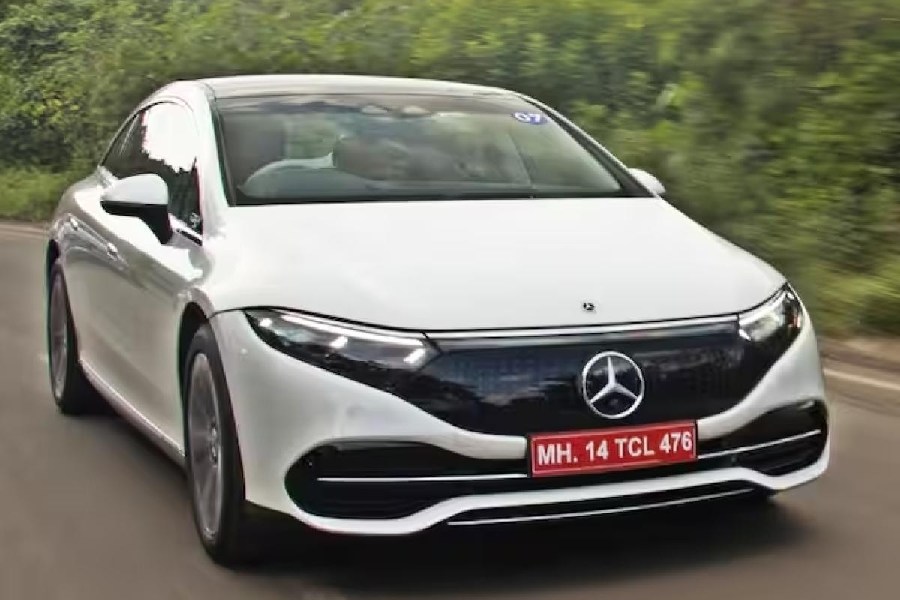Mercedes Benz India is hard at work to meet the car giant’s global aim to sell only electric cars from 2025. The company has a waiting period of 12-18 months for its electric vehicles (EVs).
It has launched EVs across the EQS, EQC, EQS AMG and EQB models.
The company is now holding back on launches of EVs till the waiting period eases up.
Asked how Mercedes Benz India will meet the 2025 target when it does not have visibility regarding availability, Santosh Iyer, MD and CEO of MBI, said: “Thats a transformation challenge for us, how to go completely electric by 2025 when there is no visibility of availability of electric cars in 2023. We are aligned with the global Mercedes goal of going carbon neutral by 2030 also besides having an all-electric portfolio.”
“We have to prepare franchisees and build charging infrastructure. Building customer confidence in EVs is easier because people are readily adapting to this segment.”
“The challenges are internal. There are challenges of availability, price positioning, and product launches. It’s not going to be easy,” Nayar told The Telegraph.
Calling the first set of EV customers as trendsetters, Iyer said: “The next lot are fence-sitters. And to convince them and build their confidence we have to increase usage of EVs which will build their confidence.”
The company is offering EVs as courtesy cars to their customers who give their ICE vehicles for servicing. “Normally, we would give them ICE vehicles while their cars were at the workstation. Now, we are giving them EVs to let them have the experience of driving them,” Iyer said.
“It’s a lot like the transition from Qwerty phones to smartphones. Once customers got used to the touchscreen, they no longer wanted Qwerty. The same thing will happen with EVs.”
The company is following a top-down approach while introducing EV models in India. “Our EVs are starting at a price point of Rs 80 lakh. Even the EQS, which is localised, is priced at around Rs 1.6 crore So we are following a top-end strategy, while the rest of the luxury market is launching its EVs at the bottom end.” said Iyer.
When asked about the Indian auto industry’s transition to EVs, the MD said: “There will be a time lag in the adoption of EVs for the mass market. India will take more time, there will be slower adoption of EVs here because not every customer has the luxury of having his own house for charging.”
“We did a dipstick on our customers buying the second chargers and we found that they were installing chargers in the office. About 15 per cent of our customers installed chargers only in the office.
“This was probably because establishments are giving benefits of power tariffs. The takeaway from all this is that public charging may not be needed because you can charge at home or at the office,” said Iyer.











